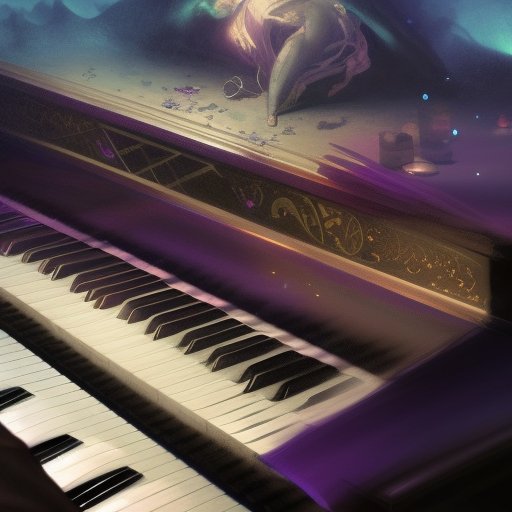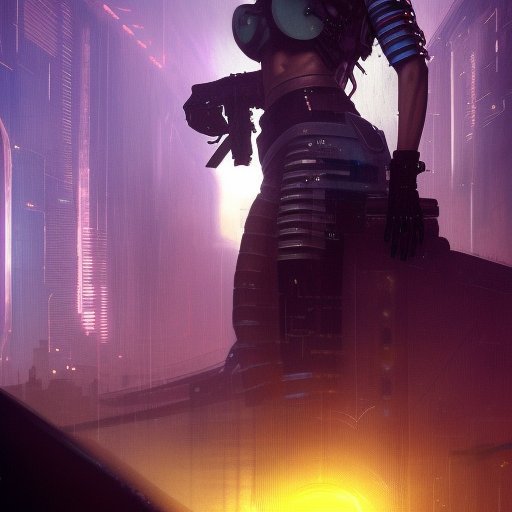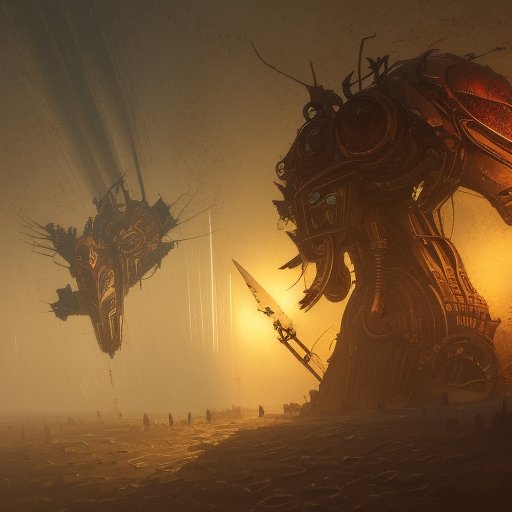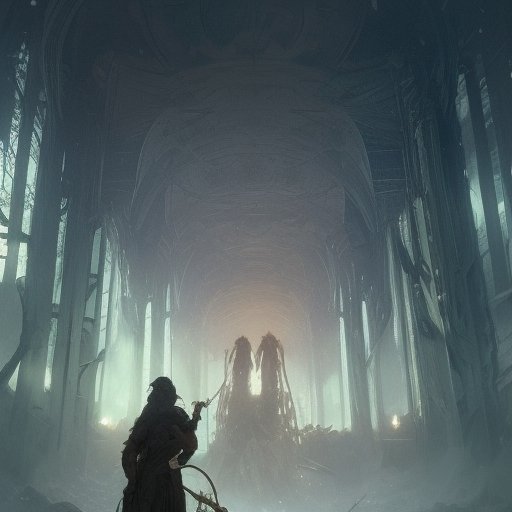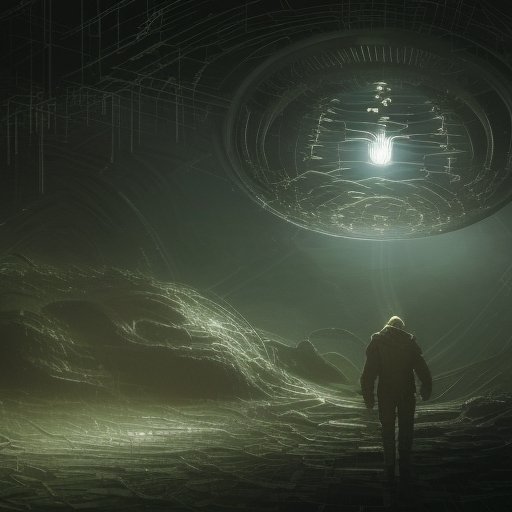
Get ready to meet the new generation of pianos, the ones that will blow your mind away. The pianos of the future will be more than just a musical instrument, they will be an experience. Through the integration of technology and artificial intelligence, piano playing will be easier and more accessible to all. You will witness the use of virtual reality in piano concert performances and learn how AI is revolutionizing the way we learn to play the piano. Get ready to be awed by the self-playing pianos that will leave you breathless. The future of piano playing is exciting, and it’s all thanks to technology.
I. Introduction
Greetings, fellow humans! Are you ready for the future? Of course, you are! And what could be more futuristic than the next generation of pianos?
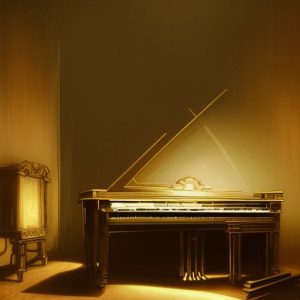
That’s right, pianos! The timeless instrument that has captivated audiences for centuries is about to get a 21st-century upgrade, thanks to some cutting-edge technology and innovation. And in this article, we’ll be exploring just what those changes will look like.
Now, you might be thinking, “Who cares about pianos? Aren’t they just relics of the past?” Well, think again, my friends! The next generation of pianos promises to be something truly special, with features that will blow your mind.
Imagine being able to learn to play the piano in a fraction of the time it takes now, thanks to artificial intelligence and virtual reality. Or how about the ability to customize your piano’s sound and style to fit any genre or mood, with just a few taps on a touchscreen?
And that’s just scratching the surface! The future of pianos is teeming with possibilities, from self-playing pianos to ultra-lightweight portable keyboards that can be played anywhere. The only limit is our imagination.
So, get ready to be transported to a world where pianos are smarter, more versatile, and more entertaining than ever before. Whether you’re a music lover or a budding pianist, you won’t want to miss what’s coming next. So, buckle up and get ready to explore the exciting world of the next generation of pianos!
II. The History of Pianos
Ah, the history of pianos! It’s a story as old as music itself, spanning centuries of innovation and creativity. And in this section, we’ll be taking a journey through time to explore the evolution of pianos, from their earliest beginnings to the present day.
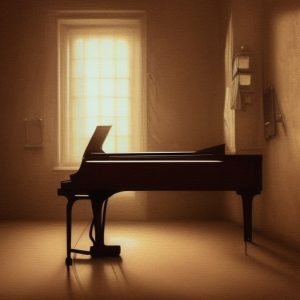
It all started in the early 18th century, with the creation of the harpsichord. This early keyboard instrument used a mechanism to pluck strings, and while it was a popular choice for composers at the time, it lacked the expressive range of dynamics that the piano would later offer.
Enter Bartolomeo Cristofori, an Italian harpsichord maker who was determined to take the instrument to the next level. In 1709, he unveiled his invention – the first piano. The instrument used hammers to strike strings, allowing for a much greater control over dynamics and expression.
Over the next century, pianos continued to evolve, with innovations like the English Action and the introduction of metal frames and cast iron plates. By the 19th century, pianos had become the instrument of choice for composers and performers alike, with pianos filling concert halls and homes all around the world.
But the piano’s journey was far from over. In the 20th century, we saw the rise of electric pianos, which used pickups to amplify the sound of the strings, and the introduction of digital keyboards, which could recreate the sound of any instrument at the touch of a button.
And now, as we enter into the 21st century, the piano is once again poised to undergo a major transformation. With advances in technology and new approaches to design and construction, pianos are becoming smarter, more customizable, and more accessible than ever before.
Who knows where the future will take us? One thing’s for sure – the piano’s long and storied history is far from over. So, let’s continue our journey onwards, and see where the next generation of pianos will take us!
III. The Future of Pianos
Now that we’ve had a taste of what’s to come, let’s dive deeper into the future of pianos. First, let’s talk about how pianos will look in the future. Picture, if you will, sleek, futuristic designs that look like they came straight out of a sci-fi movie. Think glass and chrome, with built-in screens and LED lighting that responds to the music being played.
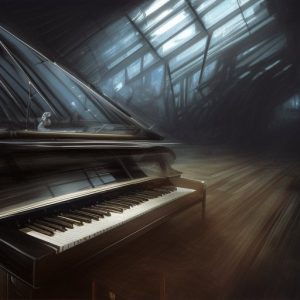
But the changes won’t just be skin deep. The next generation of pianos will have features that will appeal to musicians of all levels. For starters, they’ll be smarter, able to adjust to the player’s skill level and provide real-time feedback on their performance. This means that even beginners will be able to learn to play like a pro in no time.
Another exciting development is the inclusion of artificial intelligence. With AI, pianos will be able to learn the player’s preferences, and even suggest new pieces to play based on their preferences. And for those who love to create their own music, AI will offer endless possibilities for generating new melodies, chords and harmonies in real-time.
But that’s just the beginning. Next-generation pianos will also be able to connect to the internet, allowing players to access endless music libraries, lessons, and challenges from around the world. And for those who love to perform, pianos will be able to stream concerts to virtual audiences, with life-like visual and audio effects that will make you feel like you’re at a real concert.
Finally, let’s talk about portability. Advanced materials and technologies will make pianos lighter and more portable than ever before. Imagine being able to play your piano wherever you go, without the need for bulky equipment or heavy cases.
IV. How Technology is Changing Pianos
Greetings, fellow space travelers! Are you ready to explore the exciting world of piano technology? Then buckle up, because we’re about to blast off into a future where pianos are smarter, sleeker, and more advanced than ever before.
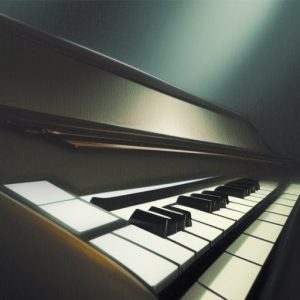
First up, we have the rise of digital keyboards. These marvels of technology allow you to create virtually any sound you can imagine, from classic piano tones to synthesizers and beyond. With just a few button presses, you can transform your keyboard into a whole band of instruments, making it perfect for live performances or recording sessions.
But that’s just scratching the surface of what’s possible with piano tech. How about self-playing pianos? These incredible machines can play themselves, with no need for a human operator. They use sophisticated programming and sensors to detect exactly which keys to press and for how long, creating a flawless musical experience every time. You can even customize the style and tempo of the music to your liking, making it perfect for a romantic dinner or a lively party.
And let’s not forget about innovations in touch and feel. Using advanced haptic feedback technology, pianos can now simulate the feeling of playing a traditional acoustic piano, even on a digital keyboard. You’ll feel the weight of the keys, the resistance of the pedals, and the subtle nuances of the sound like never before.
But perhaps the greatest innovation of all is the combination of technology and human skill. With apps and software that can analyze your playing and provide real-time feedback, you can hone your skills faster than ever before. And with virtual reality technology, you can even play alongside famous pianists, experiencing what it’s like to be on stage with the greats.
So, there you have it, fellow space travelers! The world of piano technology is expanding at an incredible pace, and the sky’s the limit when it comes to what’s possible. Get ready to blast off into the future, where pianos are leading the way in innovation and creativity.
V. The Impact of AI on Pianos
Hold on to your hats, folks, because things are about to get mind-blowing! AI is not just transforming the world around us, but it’s changing the way we interact with our beloved pianos too. With the help of cutting-edge technology, artificial intelligence is ushering in a revolutionary new age of piano playing and learning.
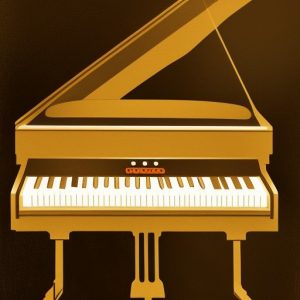
One of the most exciting breakthroughs in this area is the development of AI-powered piano teachers. These intelligent programs can listen to a student’s performance and offer real-time feedback, helping them to improve their technique and musicality in ways that were previously impossible. Students can practice whenever they want, with a digital piano, and get feedback like they are practicing with an actual instructor.
But that’s not all! AI is also enabling new forms of musical expression, with composers and performers alike using machine learning algorithms to create music that is beyond anything we could have ever imagined. By analyzing millions of musical patterns and styles, AI can now generate entirely new pieces of music that are uniquely breathtaking in their complexity and beauty.
And it’s not just about creating music either. AI is also making it easier than ever for aspiring pianists to collaborate with others around the world, with virtual real-time piano duets and ensemble performances becoming the norm. With AI-powered tools, musicians can adjust their playing to blend perfectly with others, no matter where they are in the world.
So, whether you’re a seasoned piano player or just starting out, the impact of AI on the next generation of pianos is nothing short of revolutionary. From AI-assisted learning to cutting-edge performance techniques, the future of pianos is going to be amazing. So sit back and get ready to experience a whole new world of piano playing thanks to the power of artificial intelligence!
VI. The Future of Piano Performance
The future of piano performance is looking brighter than ever before! With all the technological advancements that we have seen in recent years, it’s no wonder that we can expect to see a revolution in the way pianos are played and experienced.
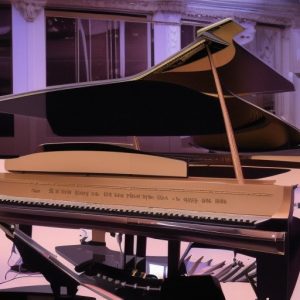
One of the most exciting developments in this area is virtual reality piano concerts. That’s right, you heard me correctly! Imagine being able to attend a live piano concert from the comfort of your own home, with the ability to move around and even interact with the musicians. It’s like being there in person, but without all the hassle of transportation or crowds.
And that’s not all! We can also expect to see more innovative ways of combining piano performance with other forms of technology. For example, interactive piano competitions where players can compete against each other from all over the world via live streaming. Or, how about pianos that respond to gestures and movements, allowing performers to create completely unique sounds and experiences?
But perhaps the most exciting thing about the future of piano performance is the way it will expand the boundaries of what we consider “piano music.” With the rise of electronic and experimental music, we are sure to see an explosion in new genres and styles that are inspired by the piano but take it in completely new directions.
All in all, the future of piano performance promises to be an exciting and limitless journey. Who knows where it will take us? But one thing is for sure: with all the possibilities that technology provides, we can expect to see some truly incredible and unforgettable performances in the years to come. So, let’s sit back and enjoy the ride!
VII. Conclusion
Well, that’s a wrap, folks! We’ve explored the exciting world of the next generation of pianos and what they have to offer. And what a journey it has been! From the history of pianos to the latest advances in technology, we’ve covered it all.
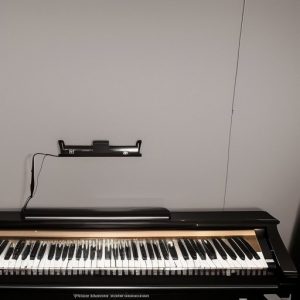
But what’s the bottom line? What does the future hold for pianos and piano players alike? In short: endless possibilities.
Thanks to new technology and innovation, the piano is no longer just a static instrument with fixed capabilities. Instead, it’s becoming a dynamic, evolving platform for musical expression and creativity.
Whether you’re a beginner or an experienced pianist, there’s no doubt that the next generation of pianos will offer something exciting for everyone. From AI-assisted learning and customization to remote collaboration and performance, the possibilities are endless.
But perhaps the most exciting thing about the future of pianos is that it’s still being written. We’re in the midst of a golden age of innovation and creativity, and who knows what breakthroughs could be just around the corner?
So keep your eyes and ears open, music lovers! The next generation of pianos promises to be an exciting ride, full of adventure, creativity, and, of course, beautiful music.
